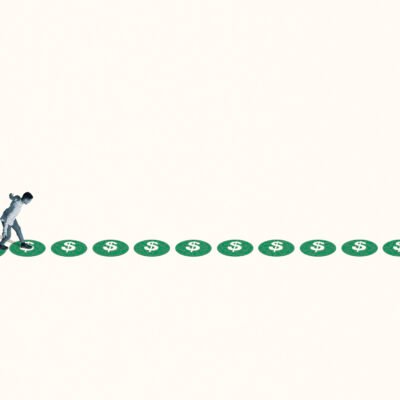Johannesburg: South Africans vote in a national election on May 29 and, for the first time since the end of apartheid 30 years ago, polls suggest the ruling African National Congress party (ANC) is at risk of losing its parliamentary majority. Investors are paying close attention.
Why is a majority important?
If the ANC gets less than 50 per cent support it would have to seek one or more coalition partners to govern Africa’s most industrialised economy. The new parliament will choose South Africa’s next president.
The new government will set fiscal and economic policy for the coming five years, and investors want to see if the next administration is likely to tack sharply left, head in a more business-friendly direction or prevail with the status quo of slow reforms.
What are investors focused on?
An April Ipsos poll put the ANC’s support at 40.2 per cent and most surveys have estimated it will get below 45 per cent, the level financial analysts say it needs to reach to enlist smaller, centrist coalition partners.
Otherwise, the ANC may have to seek a deal with the far-left Marxist Economic Freedom Fighters (EFF) or the economically liberal Democratic Alliance (DA).
“The market is watching very closely to see the degree to which the ANC… (is) forced to engage in coalitions with what are perceived to be extremely left-wing parties such as the MK (uMkhonto we Sizwe party) and EFF,” said Yvette Babb, a portfolio manager at US-asset manager William Blair Investment Management.
“The greyer zone of between 45 per cent-50 per cent, whereby they (ANC) may need to form a coalition with smaller parties that are more centrist, is not deemed to be a bad thing…perhaps that introduces more checks and balances into the governance process.”
How will markets react?
Post-election coalition discussions between the ANC and the EFF or the recently-formed MK, led by former President Jacob Zuma, would lead to a “kneejerk” sell-off of South African assets, said Mpho Molopyane, chief economist at South African investment and insurance company Alexforbes.
“The concern is that… we could see government turning more populist, increasing social spending, implementing policies that are anti-business, the reform agenda slowing down,” she said.
Meanwhile, coalition discussions between the ANC and DA would likely lead to a “risk-on rally”, where prices rise, Molopyane said.
“A coalition with the DA is regarded as likely to be more business friendly… an efficiently run state, fiscal prudence – all of which would bode well for South Africa’s growth prospects,” she said.
How might the election impact the rand?
The rand has reflected South Africa’s economic woes in recent years. The currency has weakened a touch year-to-date and marked annual losses of 5% or more in the previous four years.
“Fair value” for the rand-US dollar exchange rate is about 18.10 rand per dollar, so with it currently trading just below 18.40 there is a relatively small election-linked risk premium, said Elna Moolman, Standard Bank’s head of South Africa macroeconomic, fixed income and currency research.





